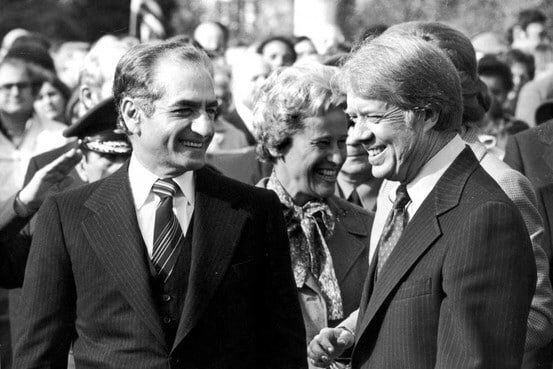Tehran – Former US President Jimmy Carter cut diplomatic ties with Iran on April 7, 1980.
After declaring the cleavage of bonds between Tehran and Washington, Carter ordered all Iranian diplomats to leave the United States within 24 hours.
Carter threatened Iran and said he would pay a heavy price for not releasing American prisoners. The US president took action after Imam Khomeini, the late founder of Islamic Revolution in Iran, who approved the acquisition of the US embassy by Iranian students in Tehran several months ago.
The revolutionary student had requested that Washington return the brutal dictator Mohammad Reza Shah. The fugitive arrived in New York on October 22, 1979 after securing President Carter’s permission and angering Iranian revolutionaries. The US embassy acquisition took place 13 days later, demanding that 66 American prisoners be taken and handed over the Shah.
Five women and eight black men were released in November, and another prisoner was released in July due to health issues. The remaining 52 people spent 444 days in prison on suspicion of being spies.
In response to Carter’s announcement of breaking diplomatic relations with Iran, Imam Khomeini, the late leader of the Islamic Revolution, said the moves by the US president would benefit the poor Iranian nation.
“I received news about the decision to cut ties between Iran and the US. It was the best thing Carter could have done in his life to benefit the oppressed Iranian nation. After the oppressed people broke those ties, the people who had broken imperialists and colonialists, the people who had broken oppressed people, the people who had broken oppressors, the blessings prove that America can no longer exploit Iran.
After the embassy seizure, US hostility towards Iran has entered a new stage. The bloc of Iranian property and the imposition of sanctions has continued unabated.
US hostility has angered Iranians more than Iranians, as opposed to what has been claimed by US officials who argued that sanctions weren’t targeting ordinary Iranians.
Cutting ties with Iran was not a wise move. Since the Islamic Revolution in 1979, the subsequent sanctions policies pursued by Washington have irritated Iranians as they targeted mainly their livelihoods rather than Iranian government officials.
For years, the US has seized Iranian assets and robbed Iranian citizens of oil revenue.
Ayatollah Seyed Ali Khamenei, leader of the Islamic Revolution, recently rejected President Donald Trump’s call for a direct meeting amid the biggest pressure campaign Washington has exercised against the Iranian state.
Iran has always said it calls for engagement and equal relationships with all countries in the world. Without diplomatic relations, Pakistan will serve as Iran’s protective force in the US, while Switzerland will serve as Iran’s protective force in the US.

